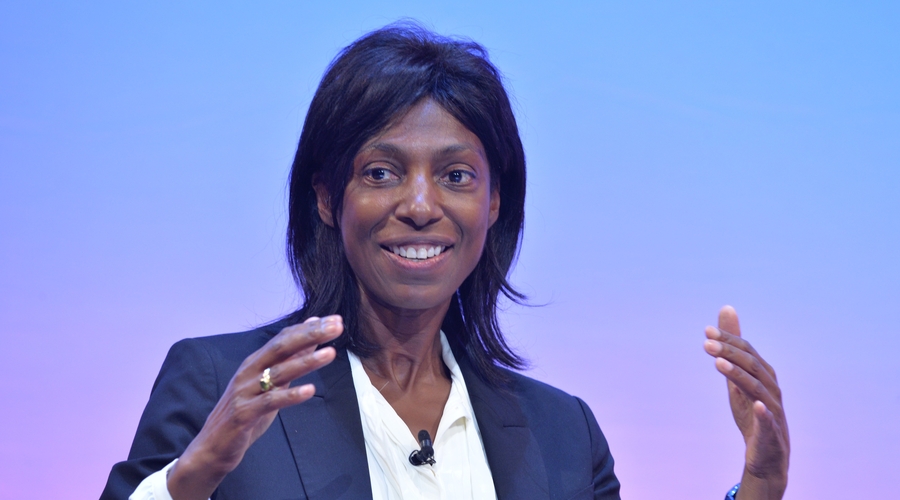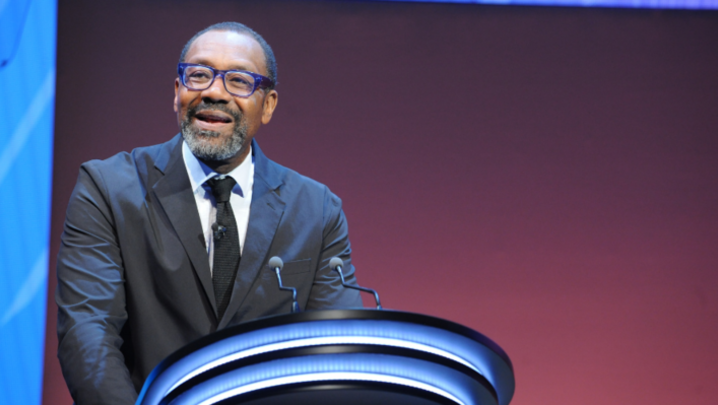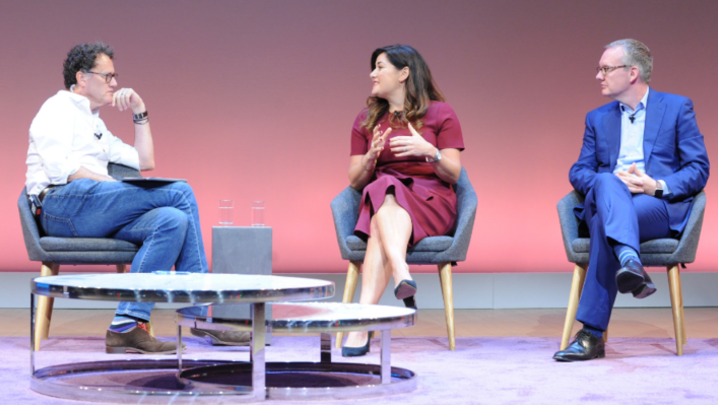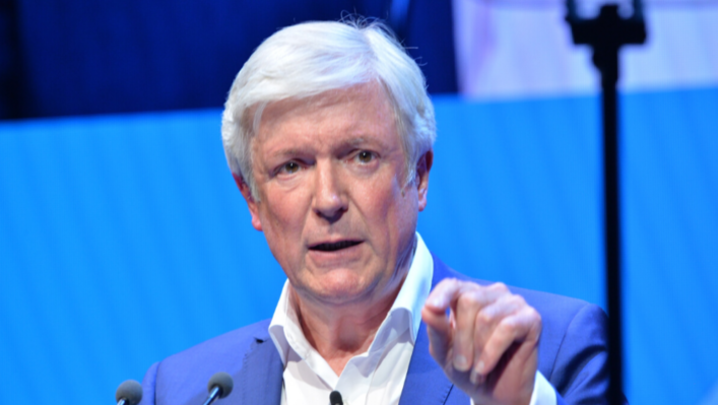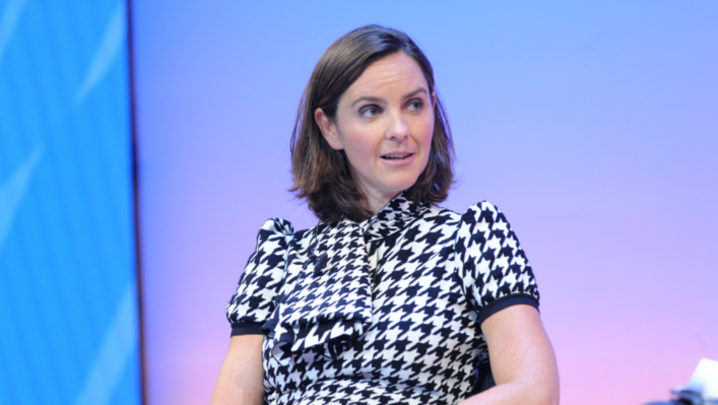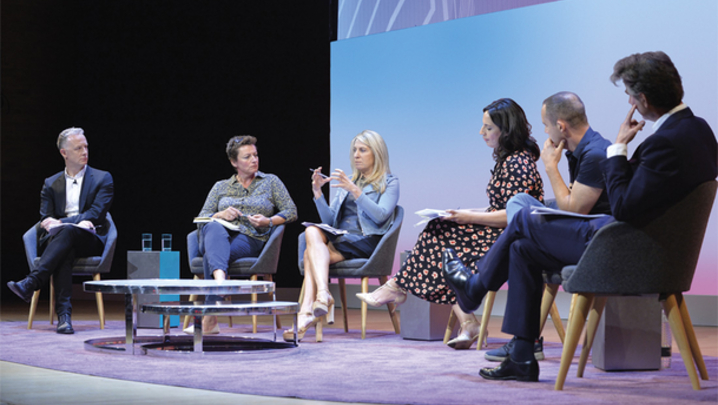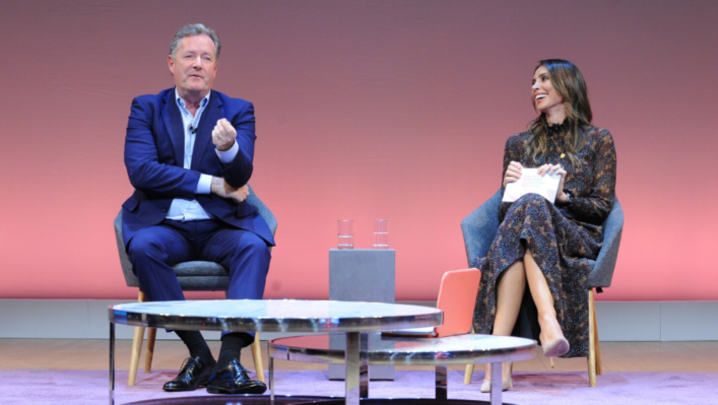The Ofcom CEO weighs up the regulator’s hits and misses
In her third and final appearance at an RTS Cambridge Convention, the outgoing CEO of Ofcom, Sharon White, gave a candid insight into what she described as the regulator’s tense relationship with the BBC, and reflected on why the TV industry had failed to improve its record on diversity.
She also provided some advice to today’s teenagers hoping to secure a career in media. “When I look back at what I always regard as a slightly accidental career, so much of it is about confidence,” recalled White, a Cambridge University graduate who went to a girls-only comprehensive in Leyton, east London.
“To have confidence and knock on the door, you’ve got to believe that someone is going to open the door. I’d encourage 17-year-olds to knock on the door because you’ll be surprised at how many people will be willing you to success and will mentor you through.”
She was speaking on the day that Ofcom published its third diversity report of her watch, “Diversity and equal opportunities in television”. Its bleak conclusion was that “there has been no discernible change in the TV industry’s diversity profile”.
Women and disabled people remained under-represented; the proportion of women in the TV industry workforce had fallen to 45%, compared with 47% across the UK’s working population. The proportion of women in senior management roles had not risen significantly, edging up from 41% to 42%.
At a senior level, minority ethnic representation remained low. Overall, the proportion of BAME people working across the sector was stuck at 13%. On social class, those working in TV were twice as likely to have attended private school as the population as a whole. Only a minority of TV staff had working-class backgrounds, Ofcom found.
'Moving the dial on diversity is very much a collective effort'
“Over the past three years, the dial hasn’t shifted,” admitted White, who had made the issue her defining mission when she was appointed. Where did she put the blame – on the broadcasters and production companies, or was she at fault, asked her interviewer, ITV’s Julie Etchingham.
“Moving the dial on diversity is very much a collective effort,” said the Ofcom chief, who, in January, takes over as Chair of John Lewis. “We’re three years in.… All of this is going to take much more concerted leadership and effort.”
She was still optimistic that, in two or three years’ time, real change would occur. There had been no shortage of initiatives to boost diversity, including those for writers and directors, but the data indicated that there remained “a long way to go”.
White added: “There should be a huge spur from producers and broadcasters – and yes, of course, the regulator – to get much broader representation.”
Ofcom would now seek legislative powers to allow it to collect information from broadcasters on a wider range of diversity characteristics. And it wanted them to include data relating to freelancers, who make up around half the overall workforce.
“It’s a voluntary engagement,” she pointed out. “Lots of broadcasters have been fantastic. But we’d love to get to the position where we’re able to collect a much broader [range] of information on an obligatory basis.”
White continued: “If we see diversity as some sort of tick-box exercise in political correctness, [done only] because, once a year, the regulator is going to produce a league table, we might as well shut up shop.”
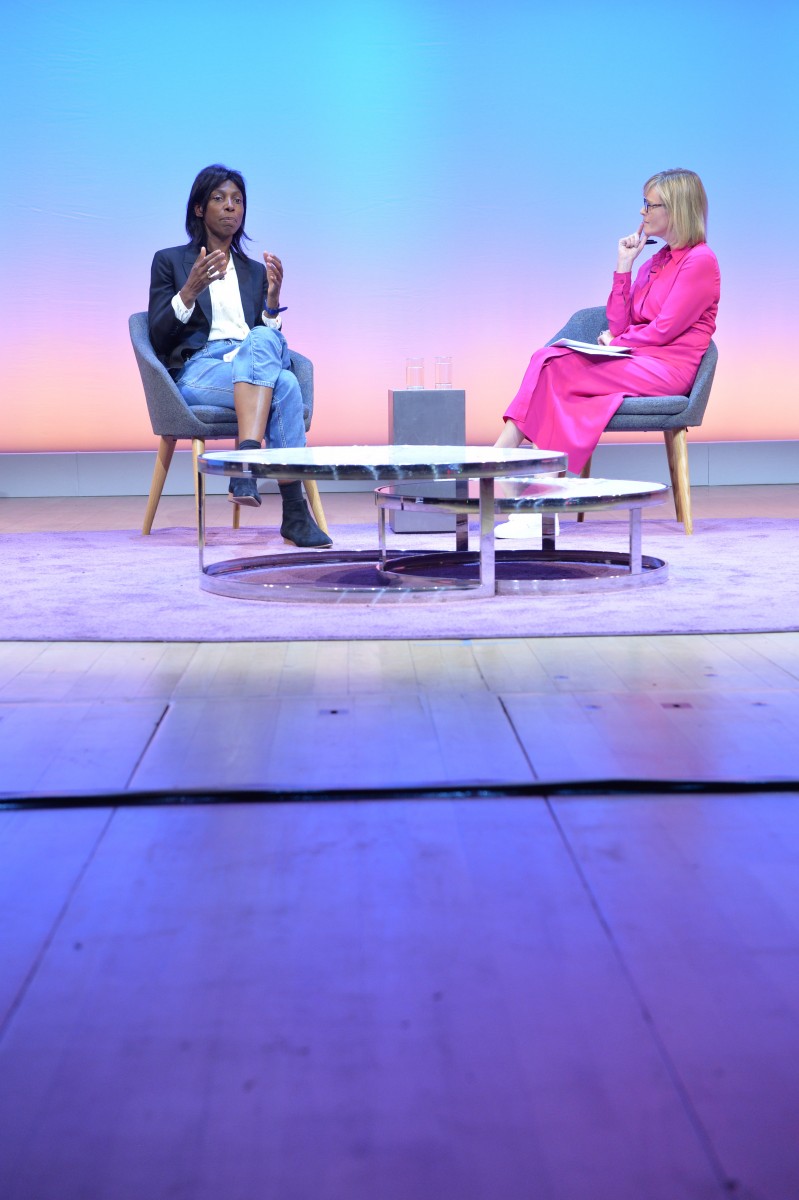
(Credit: RTS/Richard Kendal)
How was Ofcom itself doing on diversity? “At all levels of the organisation, including senior levels, we’re doing well on gender, less well on ethnicity at senior levels, but starting to make some good progress. I [don’t] see ourselves as the saints at the table.… All of us have got things to learn from each other.”
Emphasising the importance of “authentic content” that reflected all of the UK, the CEO said that, outside London, many communities were convinced that what they saw on TV failed to reflect their lives. “We need content that is representative of the audience… it’s a mind-set shift.”
What had been learnt from Ofcom’s diversity work that she’d like to hand on to her successor? “I think we have come on in terms of the conversation. Crucially, it’s about concerted leadership that sees this as a core part of the business of running a successful broadcaster or production company.”
Turning to the regulator’s latest PSB survey, announced in July, she said that organisations such as the BBC and ITV were facing unprecedented pressure from global on-demand players. The Ofcom boss acknowledged that the regulator’s last PSB report in 2015 had underestimated the “fundamental shift in viewing habits”, and noted that “the smartphone generation [is now] completely bypassing PSB”. PSB content was fantastic, she said, but hard questions needed to be asked about how it was marketed and distributed in a world where young people ignore TV channels. In this context, she praised the innovation represented by BritBox in making PSB content much more available online.
However, she was convinced that the survival of the PSBs required effective rules on prominence. Ofcom’s own research showed that 12- to 15-year-olds were far more likely to recognise platforms such as YouTube and Netflix than they were the BBC. She, herself, believed there was a role for a levy on the online platforms to support core public service broadcasters.
'I am not sure [the BBC] has quite come to terms with having an external regulator'
Since April 2017, Ofcom has been responsible for regulating the BBC. White admitted that this had not always been easy, especially in relation to the regulator’s protracted and fraught review of the corporation’s ambitions for its iPlayer service.
“I think there’s a fundamental tension in the relationship between Ofcom, as the first external regulator of the BBC, and the corporation,” she said. “I am not sure it has quite come to terms with having an external regulator.
“The discussion we’ve had over the iPlayer during the past 12 months is partly a reflection of this. I think, for the BBC, there is a sense that the world has changed dramatically, and that the competition is Netflix and Amazon.”
The corporation was “regulated for the UK market” yet was very conscious that “it is a small player in the global market”. “I feel very strongly that the BBC gets a huge amount of public money. Parliament sets very important goals for the BBC in terms of airing distinctive, quality content… ensuring that it does a great job, but not at the expense of other players in the UK market, whether that’s ITV or Channel 4, is incredibly important.”
What impact had regulating the BBC had on Ofcom? “Personally, I was always very cautious about taking on the BBC. Actually… I’m more positive about it now than when we started. We’ve got the ability to look across
the whole of the broadcasting market.
“Whether we’re looking at news, diversity or online competition, the BBC is central to that. Others can judge us, but I think that having the BBC as part of our broadcasting duties has made us a better regulator.”
Ofcom’s examination of BBC news and current affairs is due to be published later this autumn.
White said that audiences continued to regard PSB news as highly trusted. Even younger people use the BBC and ITV news to check the veracity of a story breaking on Twitter.
“But viewers do wonder if the BBC plays too safe,” White noted. “They want to see more in-depth, edgy, bigger, bolder [coverage], particularly in current affairs. Is there too much Westminster bubble talking to Westminster bubble?”
Viewers in Scotland, Wales and Northern Ireland thought that the BBC’s national broadcast news lacked enough coverage of their nations. As for the corporation’s online news, young people avoided using it. White opined that it was a less distinctive offering than BBC TV or radio news.
She added: “If you’re from an ethnic-minority background, you’re not feeling as engaged because the people on screen don’t come from the same communities as you.”
In Session Four, Ofcom CEO Sharon White was interviewed by Tonight and News at Ten presenter Julie Etchingham. The producers were Sue Robertson and Martin Stott. Report by Steve Clarke.

